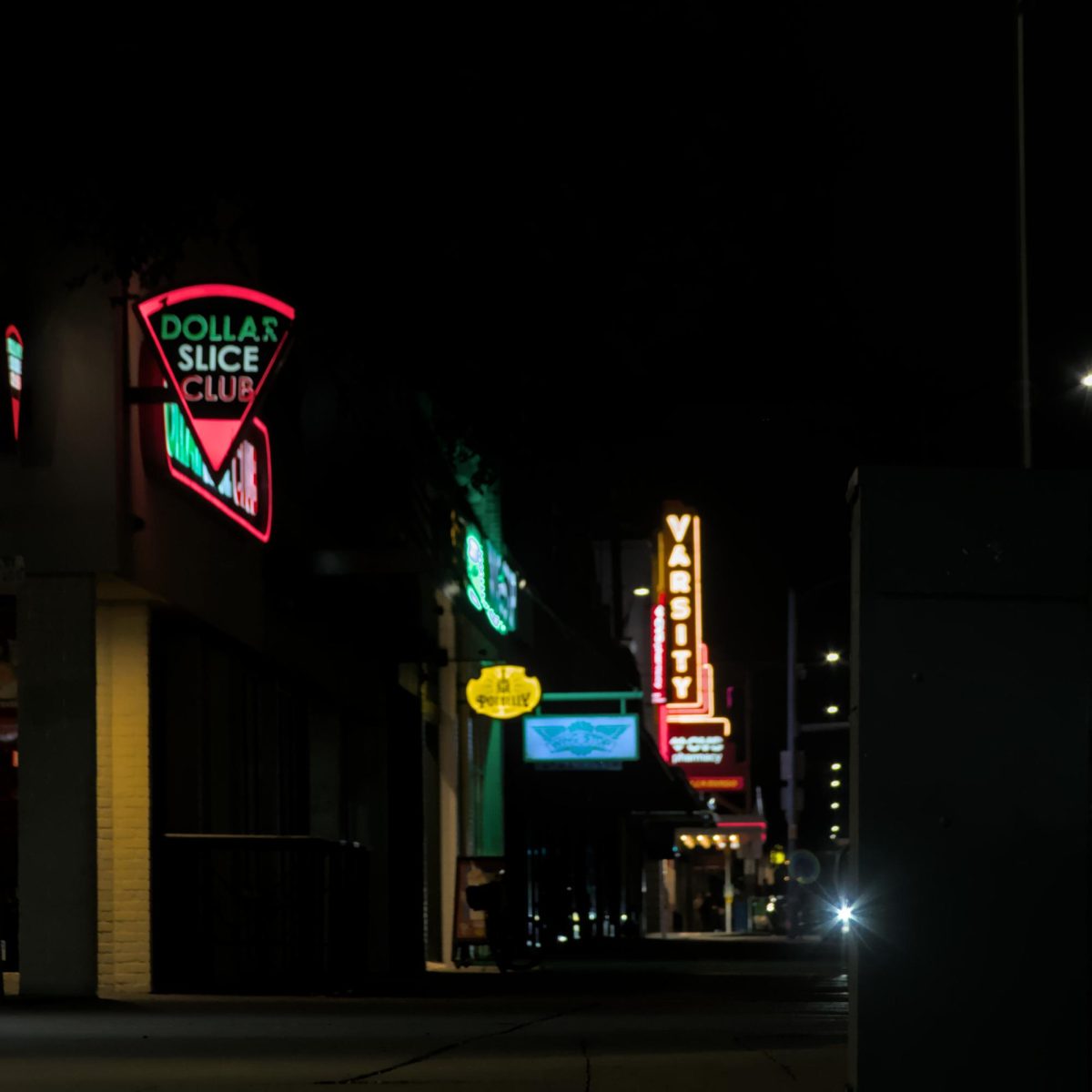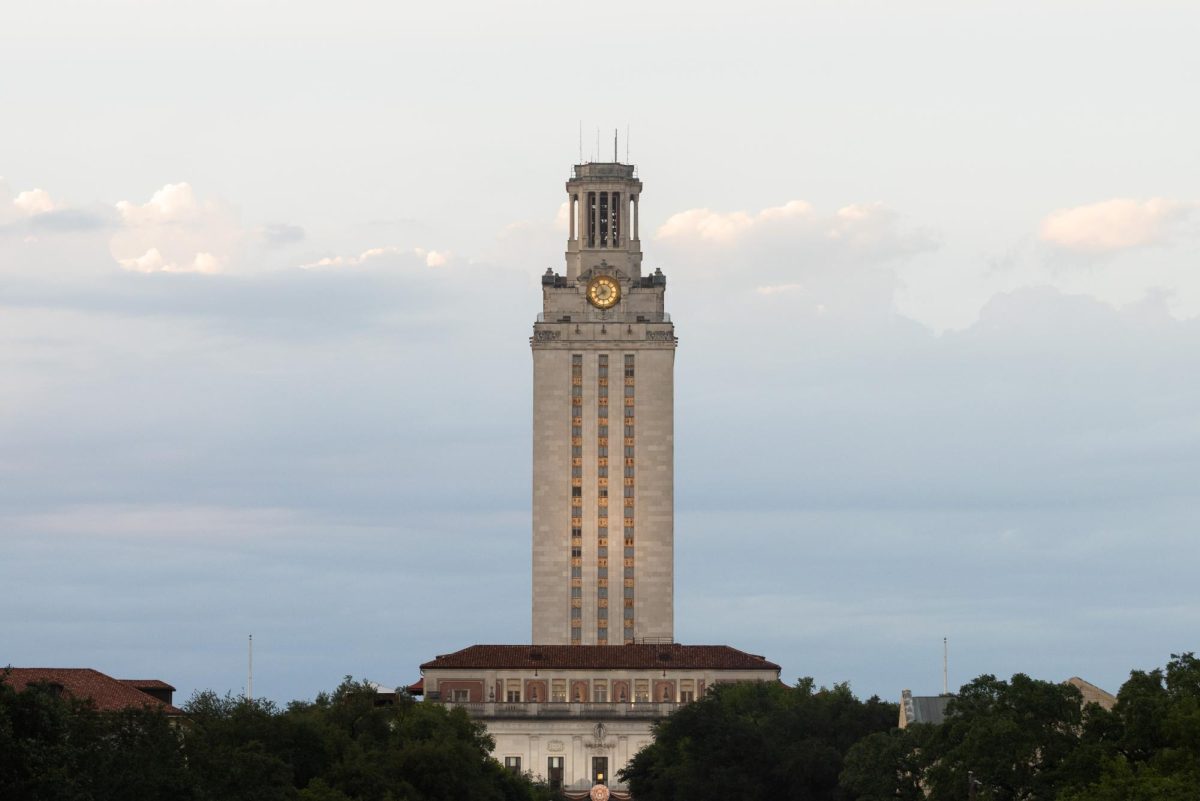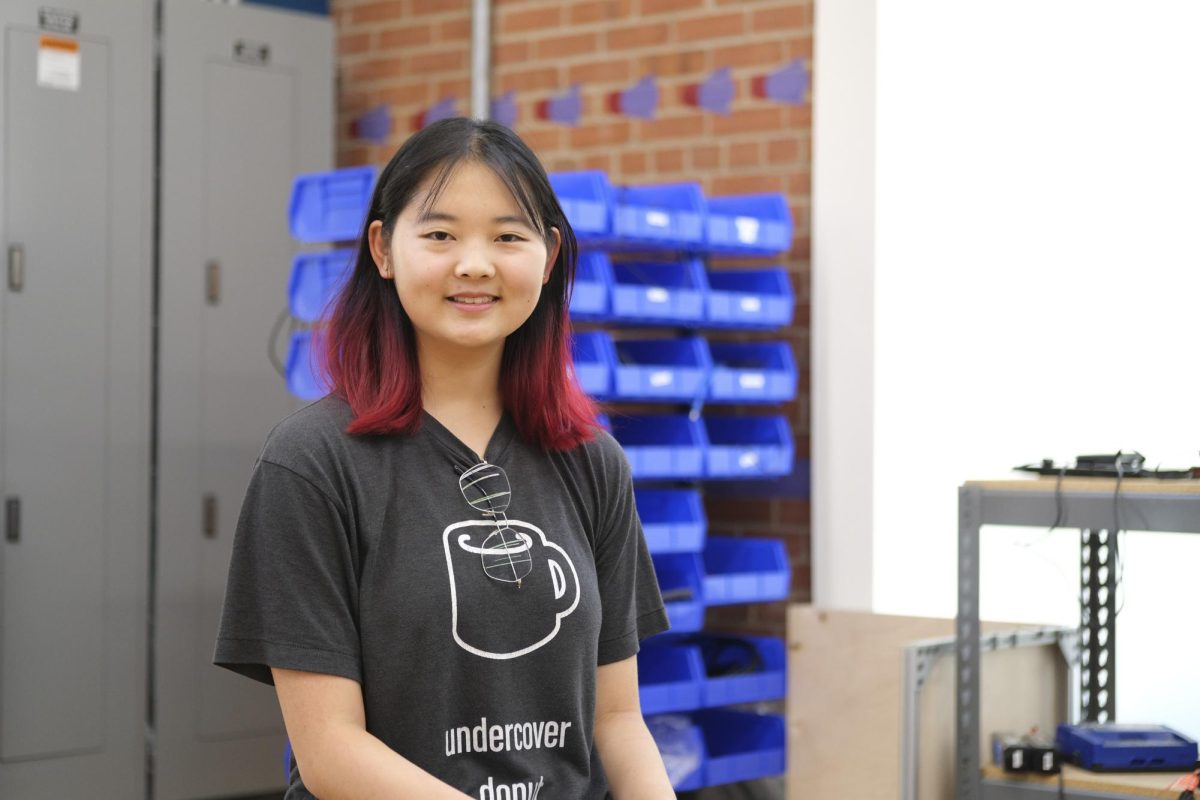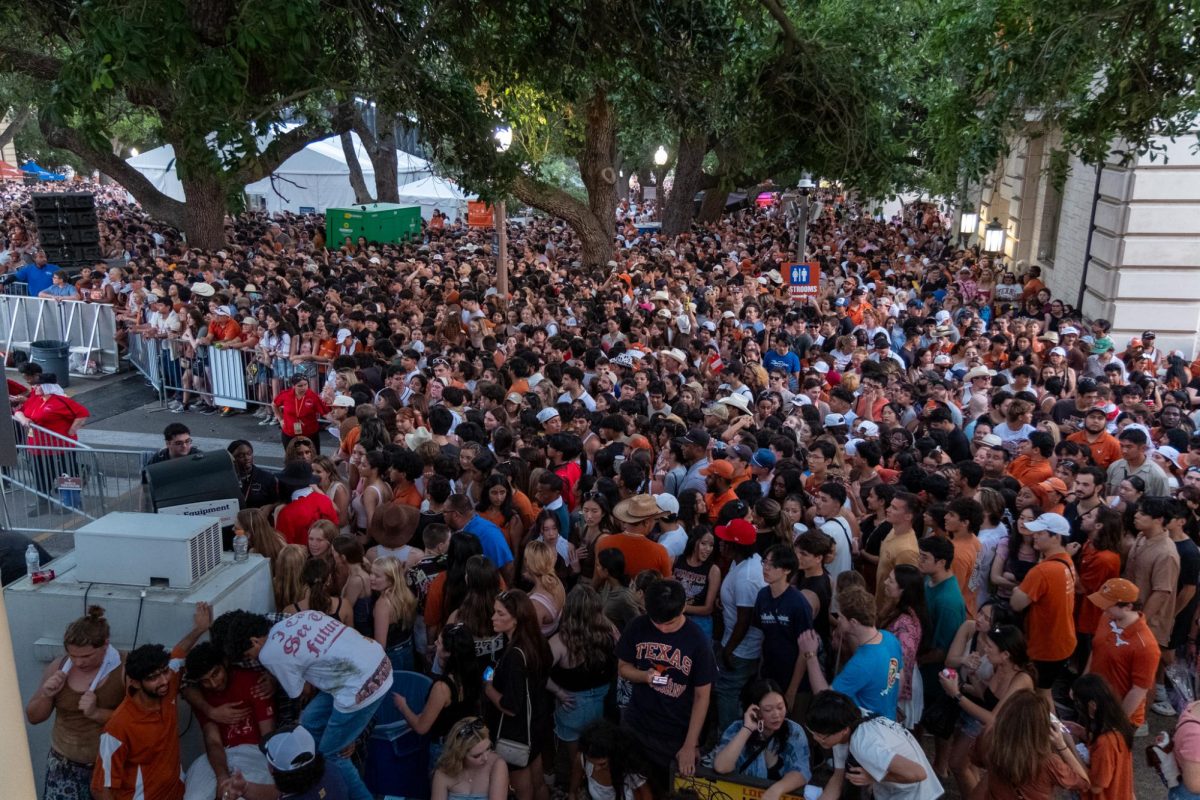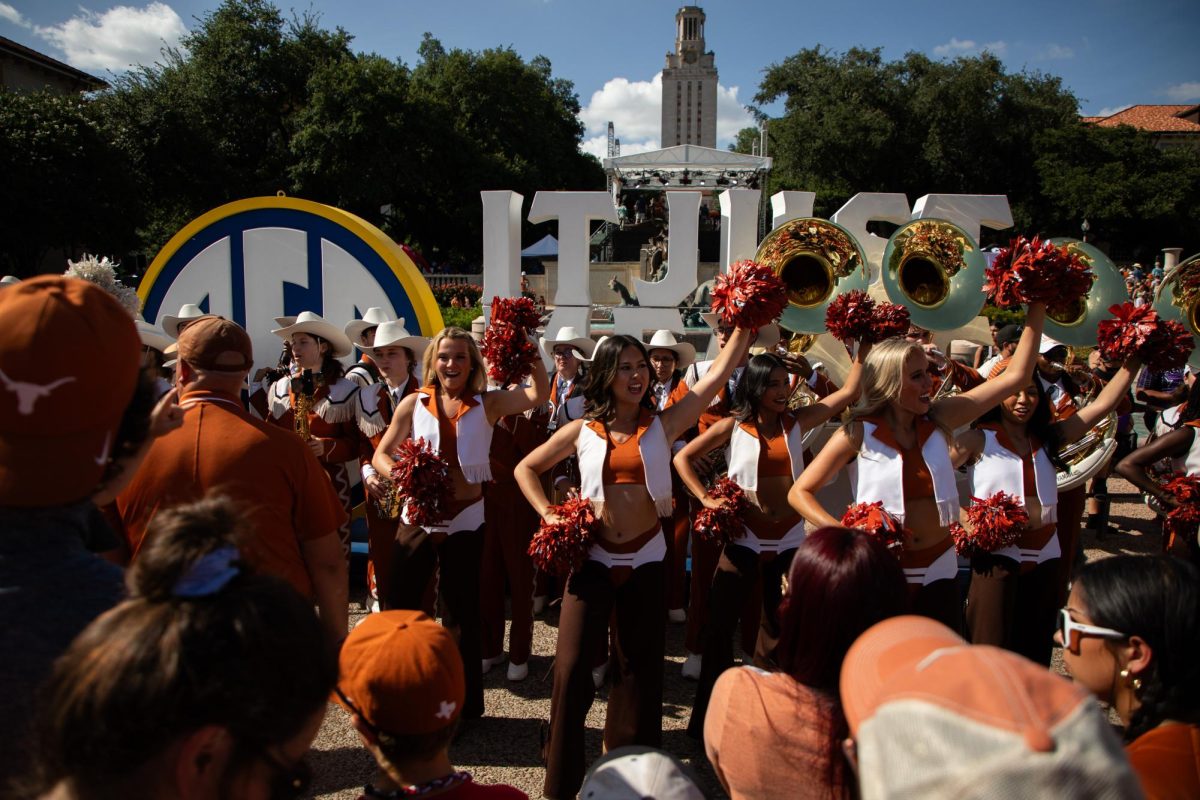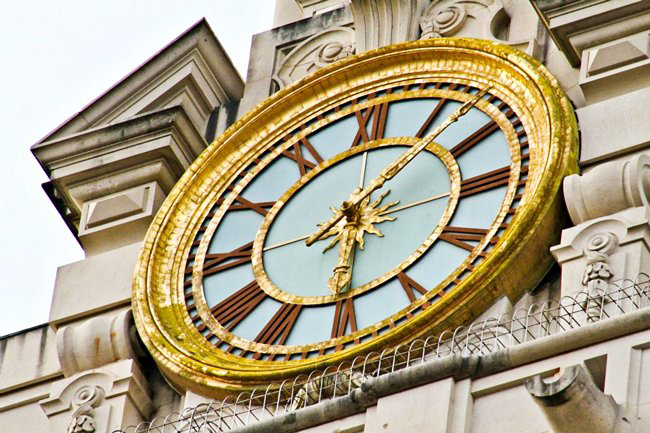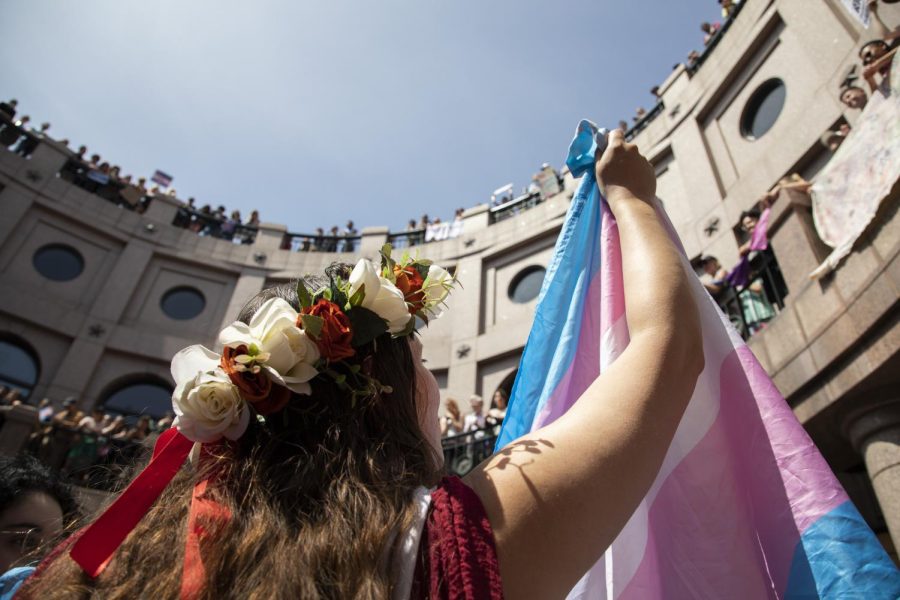Editor’s Note: The implementation of Senate Bill 17 meant the loss of diversity, equity and inclusion offices, positions and resources throughout campus. The Texan’s projects department reached out to various members of the UT community to find out how SB 17 changed their experiences on the Forty Acres. These are their stories.
Adrienne Hunter sat anxiously rereading and revising a report with her teammates in March 2022. Despite to-do lists brimming with graduate school applications, midterms and thesis papers, dozens of students from all across the city spent one last night together on this project.
Most of the months-long work happened during Zoom meetings and late nights in the UT Senate of College Council’s meeting room. After what felt like a never-ending process, the team published the first comprehensive LGBTQIA+ student report in 15 years.
“The queer landscape in 2006 was very different,” said Hunter, a UT alumna and former co-director of the Queer & Trans Student Alliance. “There were a lot of things that were a lot harder to vocalize given the environment.”
The report was an extension and update of a similar 2006 affairs report. The 2022 report showed how experiences between students identifying as LGBTQ+ versus non-identifying students differed. The project also detailed the experiences of all LGBTQ+ identifying students, including students of color and students with disabilities.
“A big (thing) for us was writing this report from an intersectional perspective,” Hunter said. “We wanted to send (the survey) out to everybody on campus because we wanted to figure out how these issues affected everybody.”
The 2022 report recommended annual allyship training for tenure-track professors, increasing funding for the Multicultural Engagement Center and the Gender and Sexuality Center, as well as introducing an outreach position for the GSC to promote resource awareness.
Isaac James, the co-director of QTSA before Hunter and contributor to the project, said the collective tried to ensure they recruited the best people to represent the student body.
He said many of the people working on the project came from advocacy spaces, like the Sexual Orientation and Gender Identity Lab. Others were student, staff and faculty representatives found through academic spaces.
“We thought the University could do better to support (its) queer and trans students in ways that would have a tangible and objective beneficial impact on (their) experiences,” said James, who also served as vice president of the UT Senate of Colleges Councils.
The team knew their recommendations were unrealistic and unlikely to happen overnight. However, Hunter said the goal was not necessarily implementation but precedence.
“Our goal (was) to create this report (and) create this set of recommendations: this is how you could create the most inclusive university possible,” Hunter said. “(In) 2030 (or) however many years later, people will know that this isn’t a new idea.”
But as the University continued to try to comply with SB 17 in January, the MEC closed down. Four months later, the former GSC closed along with all other departments under the Division of Campus and Community Engagement. Both centers were resources the 2022 report recommended expanding, both in number and physical size.
“There’s been so much progress undone because of SB 17,” Hunter said. “A lot of student advocacy work does get lost in time. … (It’s) difficult to continue when people have such a short time on campus.”
Additionally, many of their recommendations would not be in compliance under the bill, including hiring more LGBTQIA+ identifying staff in University Health Services for the comfort of students.
However, Hunter said the University can still do much more to accommodate LGBTQ+ identifying students, even within the confines of SB 17.
“There are still things that can be done to minimize harm,” Hunter said in an interview prior to the DCCE’s closure.
Recently, Hunter said, the Queer & Trans BIPOC Agency, a former MEC agency, asked for the report to continue the collective’s efforts.
James said he hopes the report and the collective’s digital advocacy act as a template for future student efforts. The #NOTOURTEXAS movement is a good example of digital advocacy, he said.
“The proliferation of access to information … has absolutely changed the game and changed the nature of student advocacy,” James said.
Amanda Garcia, a sociology and English senior, reviewed early drafts of the report for the collective. She said the report has provided a strong baseline for current efforts. Garcia and other QTBIPOCA members are currently working on archiving the report for future use, they said.
“We’re really learning from the past, especially with the DCCE being shut down,” said Garcia, who is also involved with Texas Students for DEI, a statewide network. “(It’s) understanding where they came from and understanding what it took for those spaces to exist in the first place.”
As students push forward, Garcia said SB 17 is devastating spaces built on generations of student advocacy. Nevertheless, they noticed students taking an unprecedented “unified front” and organizing across campus.
“Even if the centers that we’ve existed in … and the community is technically gone, the concept of them and the community that (previous advocates) have created are not,” Garcia said. “We’re not starting from nothing.”




